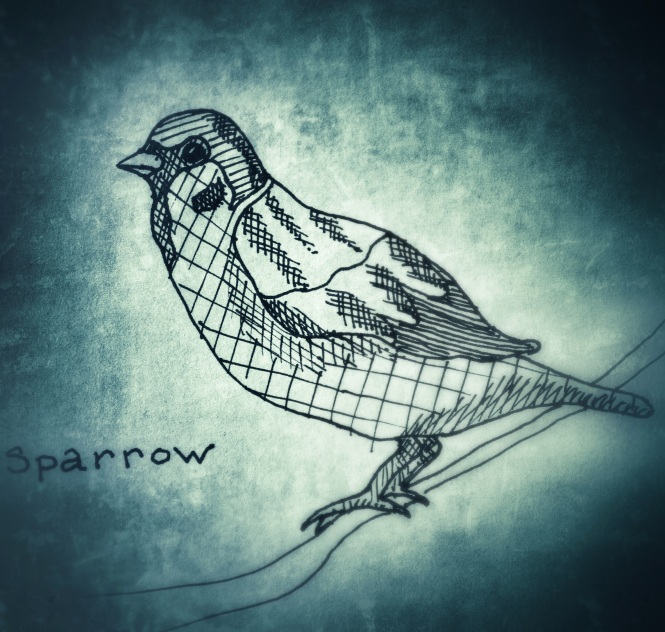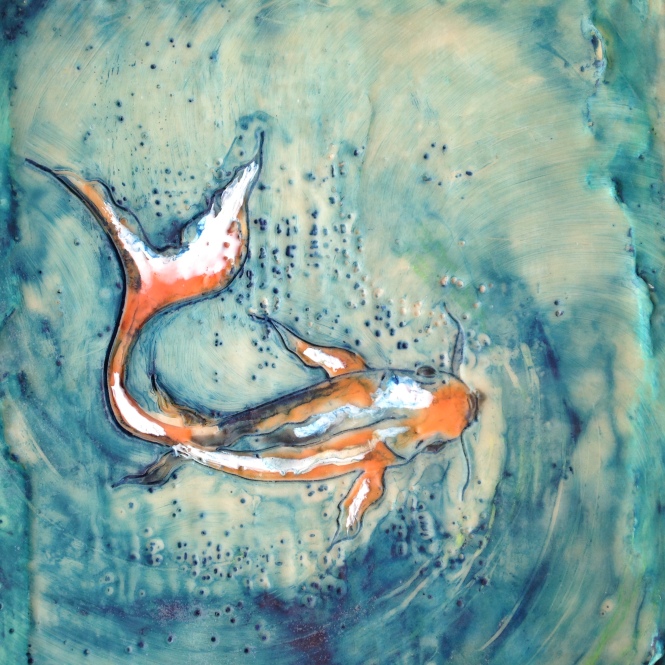Take One: Teaching Online
So this is my first kick at the online teaching can. I spent last winter designing a course and am now teaching it for the first time. It certainly is a shift. Boy, do I miss seeing students in class! Not that I ever really doubted how much I love the interaction part of my job, but it’s nice to have a reminder. As much as I can ask questions via discussions on Blackboard or through email, I still don’t have an opportunity to really get to know my students. This feels really odd to me.
On the other hand, delivering content via an online format has also presented some unexpected benefits. For example, as part of the art history course I’m teaching, I have asked students to find information online, such as examples of work they like. Recently, in studying the idea of the sacred in art, I asked that students provide me with examples of sacred space in Canada, as well as examples of songs, books, movies, etc. that explore the concept of the sacred. Their input was amazing! And my favourite part was learning from the students! I ended up hearing music I’d never heard before and finding out about sacred spaces in Canada I never knew existed. Fantastic!
I’m curious to see how the rest of semester pans out. Seven weeks and counting. Stay tuned!
Happy Draw a Bird Day!

So on the way into work this morning, I heard on the radio that today is Draw a Bird Day. It would seem as though this should be the kind of holiday that someone with the last name Sparrow should celebrate, so here I am at working sketching a quick image of a sparrow instead of doing what I am supposed to be.
The story of how this day came to be is also really interesting, so check it out online if you’re not familiar with the tale. And if you are interested in seeing other bird drawings, here is a great collection on Pinterest:
Happy drawing!
You Messed Up. Awesome!
After watching many student presentations over the past week or so, I am reminded of what I and many others believe which is the power of mistakes. As hard as it is to see people feel like they somehow didn’t do as well as they had hoped, there is still value in the experience and some would argue that there is potentially more value in the screw up. After all, is that not how we learn everything we know? You make the mistake, you recognize that your previous actions won’t work, and you come up with something that will. Let’s just call it progress, shall we?
Jim Dyson may know a thing or two about progress. If the name doesn’t sound familiar, perhaps the vacuum might, that cool looking space-age cleaning device with the ball. This is clearly a man who knows how to challenge convention, think outside the box, make mistakes, and learn. Listen to what he has to say about screwing up:
http://www.cbsnews.com/videos/james-dyson-on-learning-by-making-mistakes
It’s worked for him!
Goldfish

First attempt at encaustic painting. So much fun. Dying to try it again!
Everyone’s a Critic

Source: Pinterest
Accepting criticism for me has become easier, but it isn’t always easy. As a teacher, I am evaluated every semester by the students in my classes and their opinions of me are shared with my superiors. There are always students who don’t like me and those students are usually the most vocal when it comes to completing course evaluations. One would assume that after so many reviews, the process of hearing negative comments would get easier. Not for me. If I have 99 positive reviews and one negative, I will forget the 99 and focus on the one. It’s my curse, but I’ve come to accept it.
Constructive criticism can be invaluable and seems to be an integral part of the arts. Afterall, as artists, painters, designers, writers, singers, and actors we lay ourselves bare at the mercy of the audience. By producing and sharing, we invite the critic and the criticism. And so I think coming to terms with criticism is important; therefore, I asked that my Graphic Design students write about their experience with giving and receiving criticism, primarily in the form of the critique. Here are a few samples of what they shared:
Learning Our Stories
It seems to me that the best blog writing, the most interesting and worthwhile, is writing that feels personal. When I read someone’s blog, the elements I enjoy the most are the personal stories, where I feel as if I’ve learned something about who they, that I’ve connected with them somehow. I think we can only achieve this connection by sharing the personal. This semester I’ve had students writing weekly blog posts and this small weekly glimpse into their lives and thoughts has been really interesting for me. It has allowed for a type of connection that I wouldn’t necessarily have achieved in person; students have been writing about topics they may never have brought up in class.
This week I read an interesting article about this idea of personal stories that I think is worth a read. The author makes a great point about how knowing the personal stories about someone can greatly impact our opinion of them. It is worth considering when thinking about blog writing and sharing personal stories. What is the impact of sharing your personal stories and how do these stories influence other’s opinion of who you are?
Concerns About Online Learning
This semester I have been tasked with developing an online course and one of my greatest challenges is trying to develop a course that feels interactive. To me, the discussions and in-class dynamics that result from traditional teaching environments is what I love about my job. How can I translate these elements over into the online realm?
A recent article in the New Yorker examines the success or lack there of of the online learning environment, specifically MOOC’s. What’s interesting to me about this article is how the lack of human connection appears to be one of the reasons so few students are successful with this type of learning environment.
Think About the Bees on Valentine’s Day
Why is Writing Difficult?
“There is nothing to writing. All you do is sit down at a typewriter and bleed.”
― Ernest Hemingway
I ask this question sincerely. In my experience, it is often not the masses who find writing easy, so why is that? We have the capacity for language and written communication, we have the thoughts that guide this process, and we have the intellect to think through problems and articulate our ideas. All of which leads me to wonder if it is in fact the combination of all of these elements, the very nature of writing itself, that makes it so surprisingly difficult.
Early on we learn how to write, and we spend the majority of our time in schools writing to show we know the answers, to confirm that we get the concepts, or to verify that we do indeed know how to write. But simply knowing the vocabulary and understanding the fundamentals of writing does not necesarily make it any easier to create a written document.
Writing can become the vehicle for our thoughts, altering thoughts in to something concrete and tangible. This is part of the joy of writing. Through written words we can explore someone else’s mind, relate to their experiences. At the same time, this commitment to something concrete is terrifying. People can now read your thoughts, judge your ideas. Worse, you can now judge your own ideas in a way you may not have before. Do you like how you sound in those written words or did they sound better when they were still just floating around in the privacy of your thoughts?
Committing sincere words to paper or screen requires bravery. You’ve opened yourself up to criticism and ridicule, but I think you’re better for it in the end, at least I hope so. After all, had this bravery not been exercised by countless writers, we would never have had Romeo and Juliet, for example.
Writing is difficult. It may not be the answer we want to hear, but I think it’s the truth. In the time it has taken me to write this post I have reread my words several times, changed sentences, erased and rewritten. Writing is a process and not an easy one, but our efforts, I believe, are worth it in the end.

